“Unison Symposium”
Aida Azin, Archie Barry, Torika Bolatagici, Gabi Briggs, Sebastian Henry-Jones, Indra Liusuari, Jinghua Qian, Lisa Radford, Diego Ramirez, Leen Rieth, Iran Sanadzadeh, Chloë Sobek, Aziz Sohail, Salote Tawale and Star Wanyama
5 Aug → 5 Aug 2023
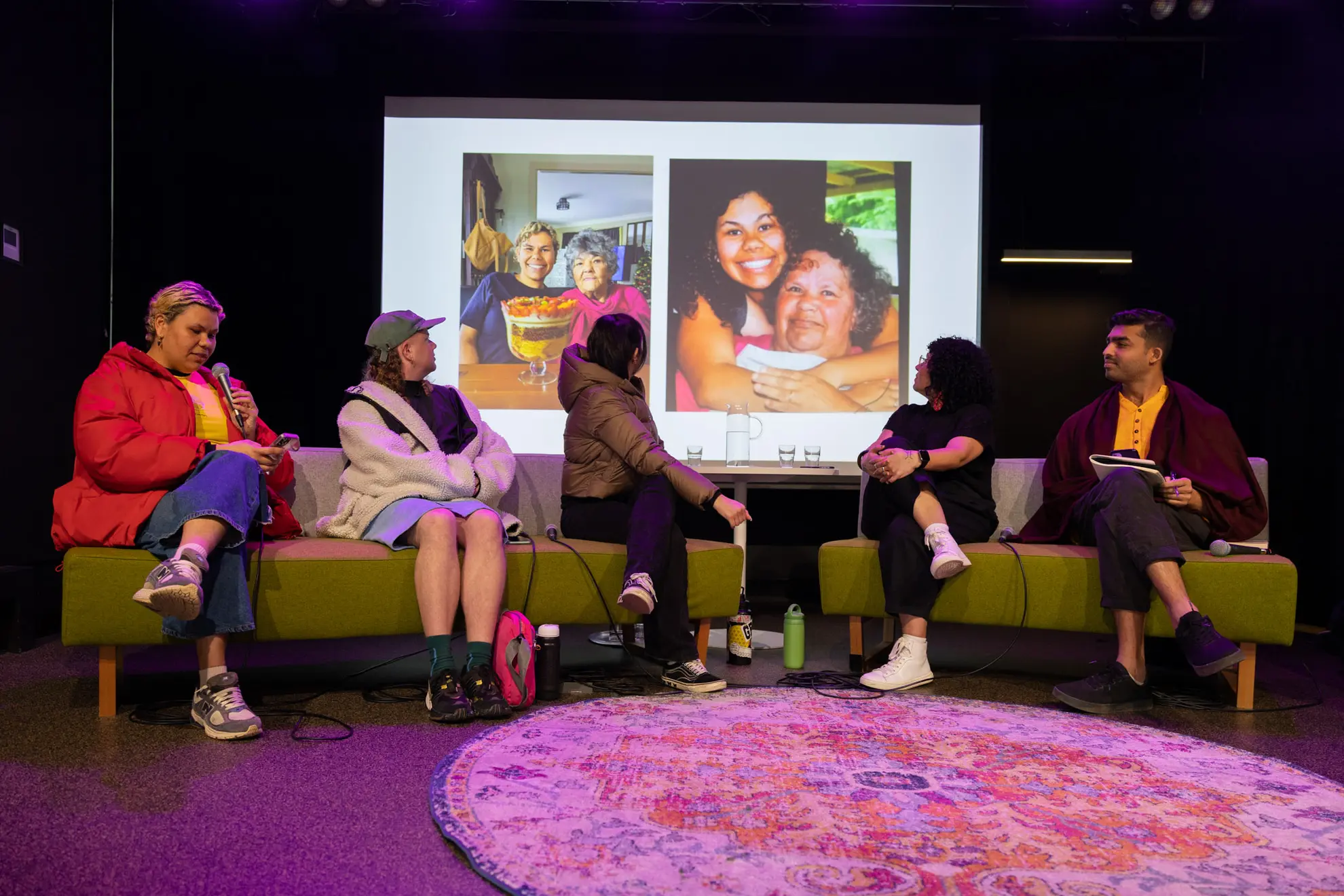
Experimental sound, poetry, discussion and cake at the Unison Symposium!
With the story of West Space as a starting point, the Unison Symposium aims to contribute to a discourse that illuminates the history and place of artist-led spaces within the context of the rapidly evolving arts sector.
Hear from artists and arts professionals engaged in articulating and analysing the complex conditions under which culture is produced today, as well as the potential of art and creative practice to transform such conditions.
Saturday 5 August, 11am to 3.30pm @ Music Market, Collingwood Yards
→ 11am: Welcome to Country
Uncle Ringo Terrick
→ 11.15am: West Space’s 30 year story
Diego Ramirez
→ 11.30am: Panel 1: Professionalising practices – the connection between universities and artist-run spaces in the urban context
Leen Rieth, Indra Liusuari, Salote Tawale, Lisa Radford, chaired by Sebastian Henry-Jones
Lunch break, cooked plant-based lunch and a drink provided.
→ 1pm: Poetry & readings
Star Wanyama, Jinghua Qian
→ 1.15pm: Panel 2: futures — responding to urgent realities and situations through artistic, curatorial and organising practice
Aida Azin, Archie Barry, Gabi Briggs, Torika Boltagici, chaired by Aziz Sohail
→ 2pm: The Flightless Path
Iran Sanadzadeh and Chloë Sobek
→ 2.30pm: Cake Show and Tell
Local artist-run initiatives presenting homemade cakes to a panel of judges. Featuring cakes by KINGS, BLINDSIDE, Trocadero and West Space.
Audiences invited to enjoy the cakes over a drink to close out the afternoon.
This program is generously supported by the Gordon Darling Foundation.
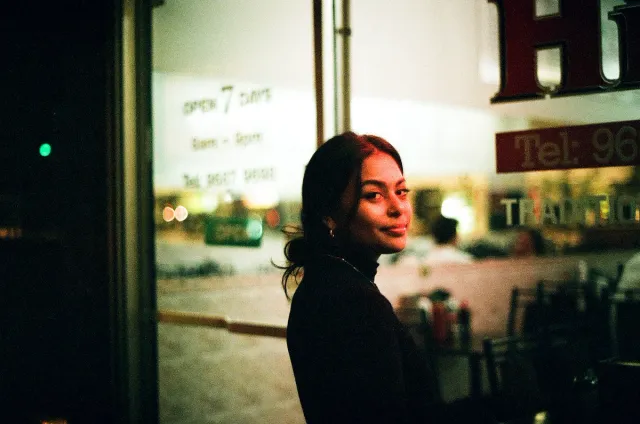
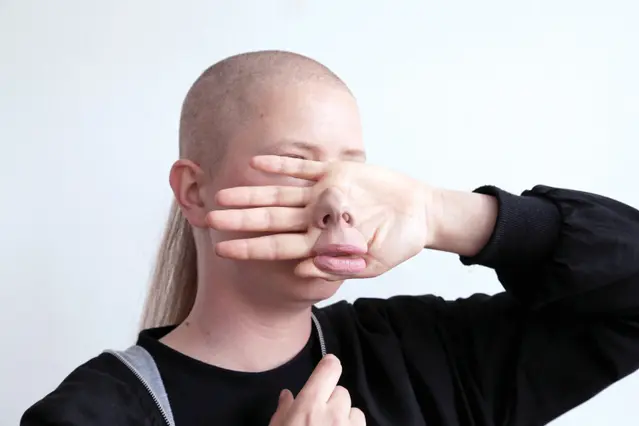
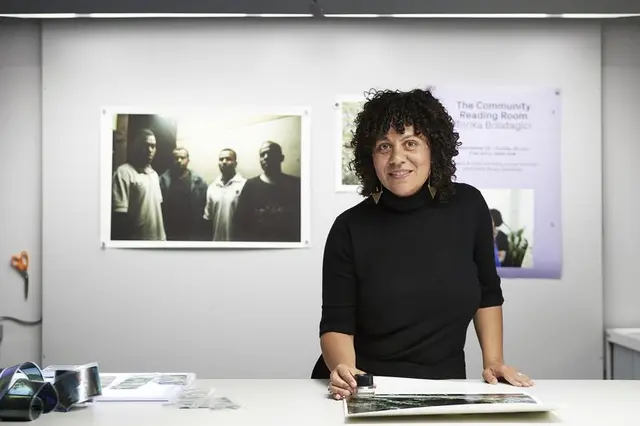
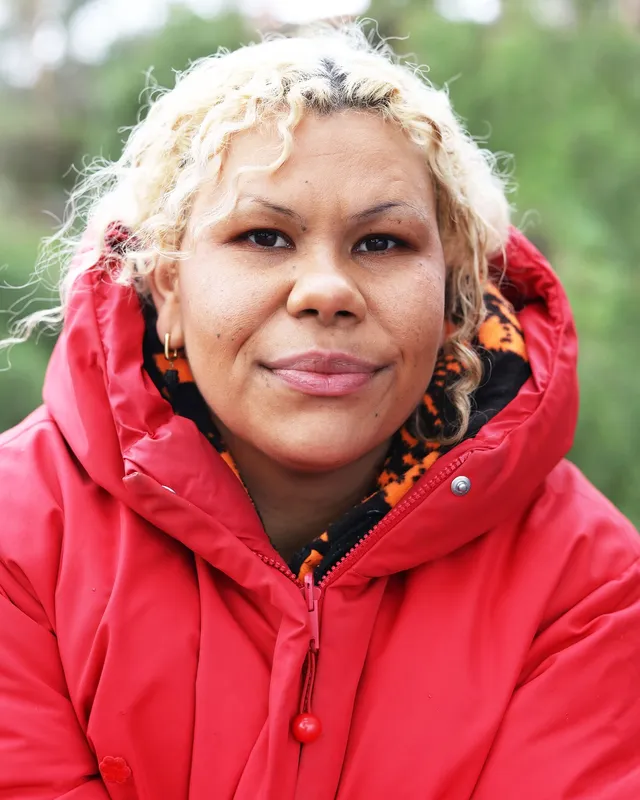
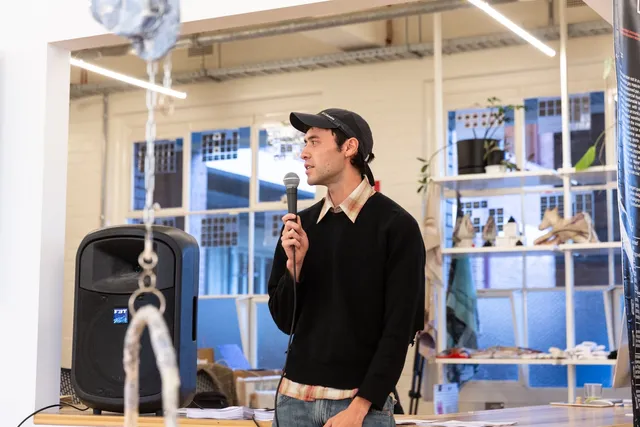
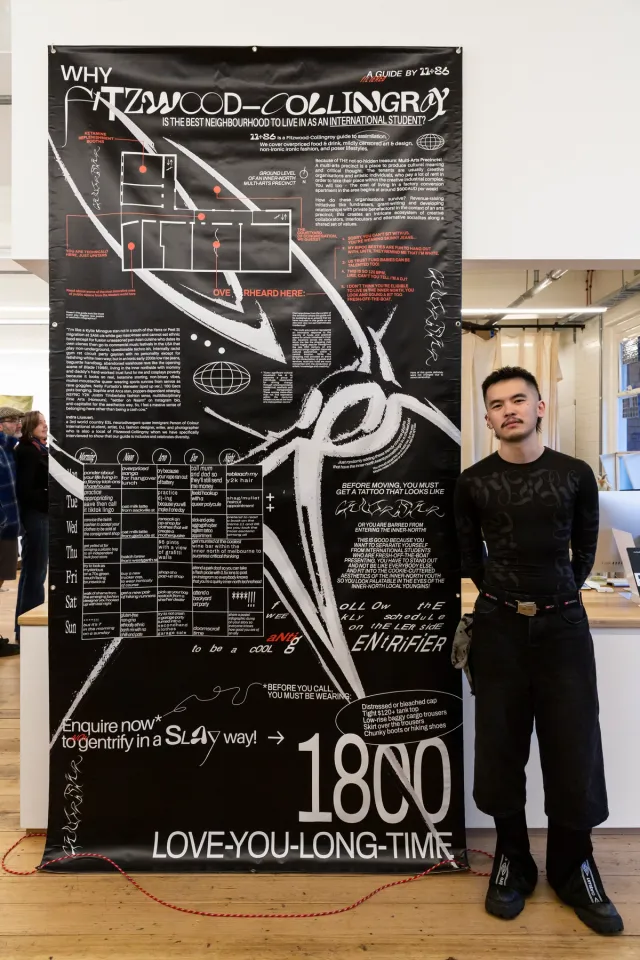
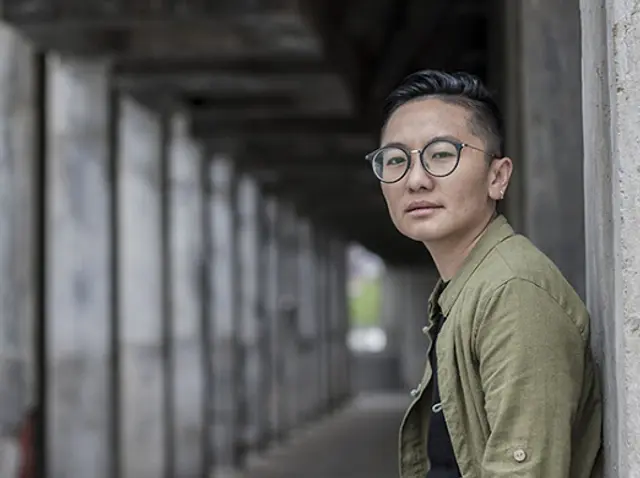
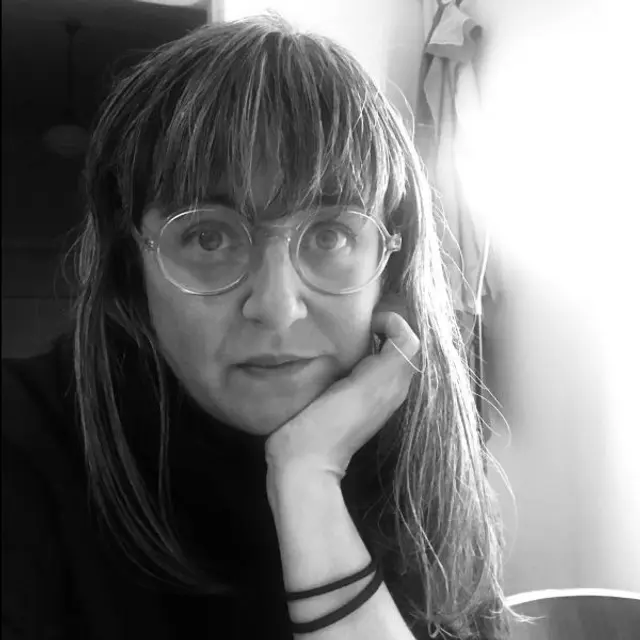
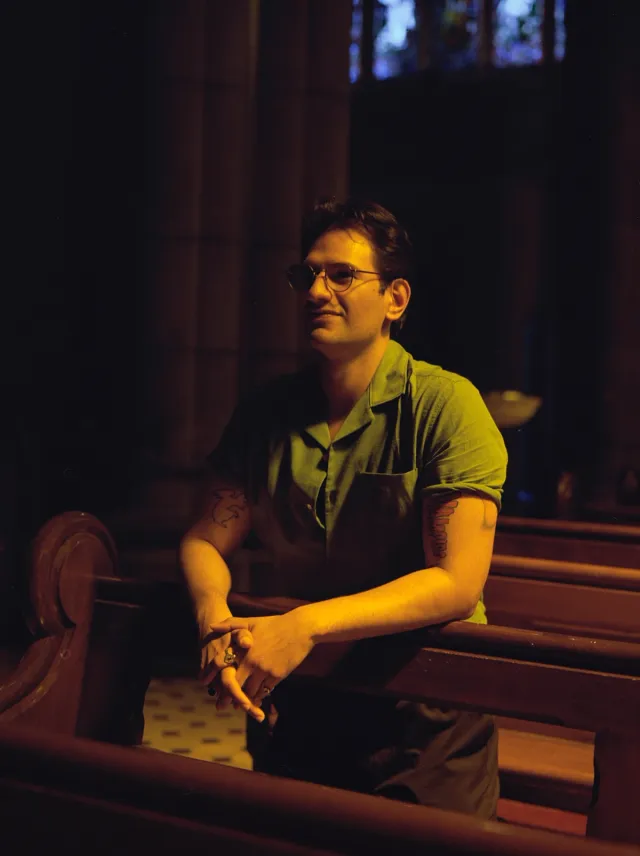
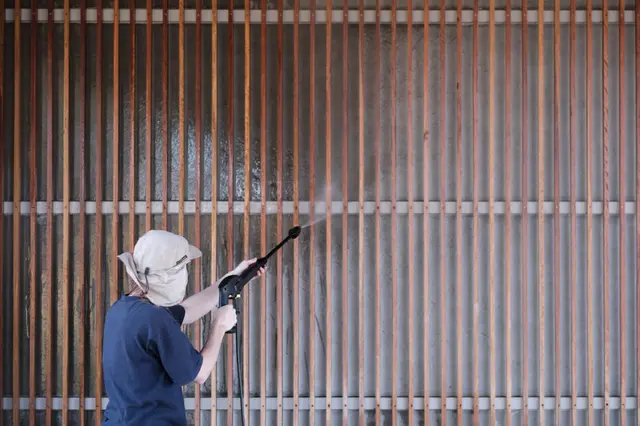
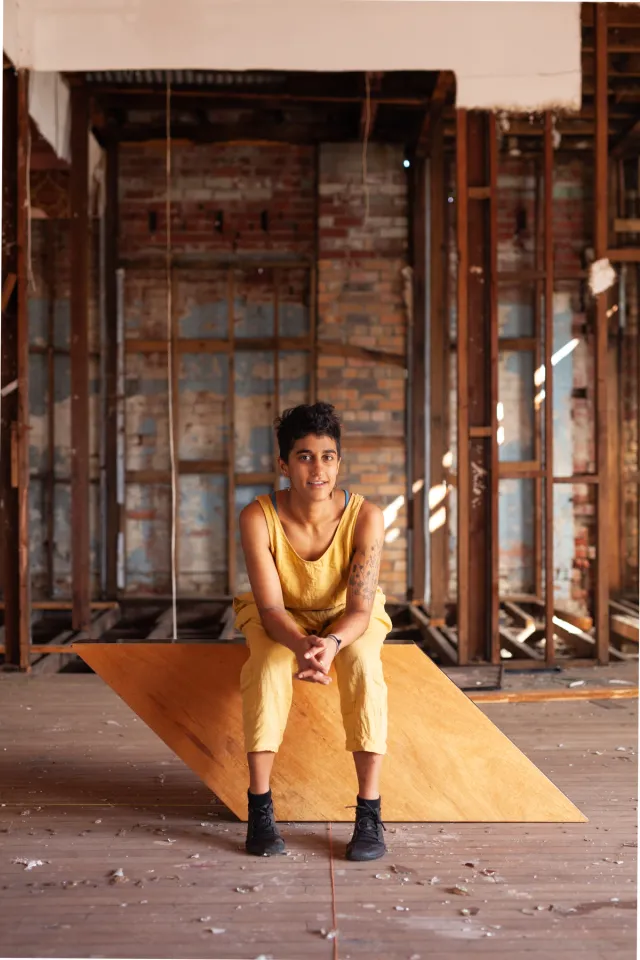
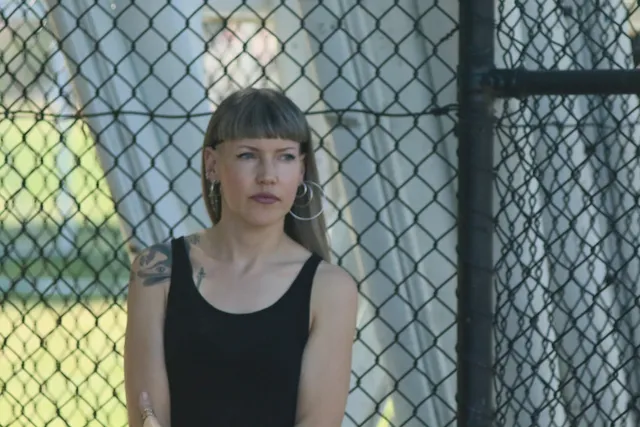
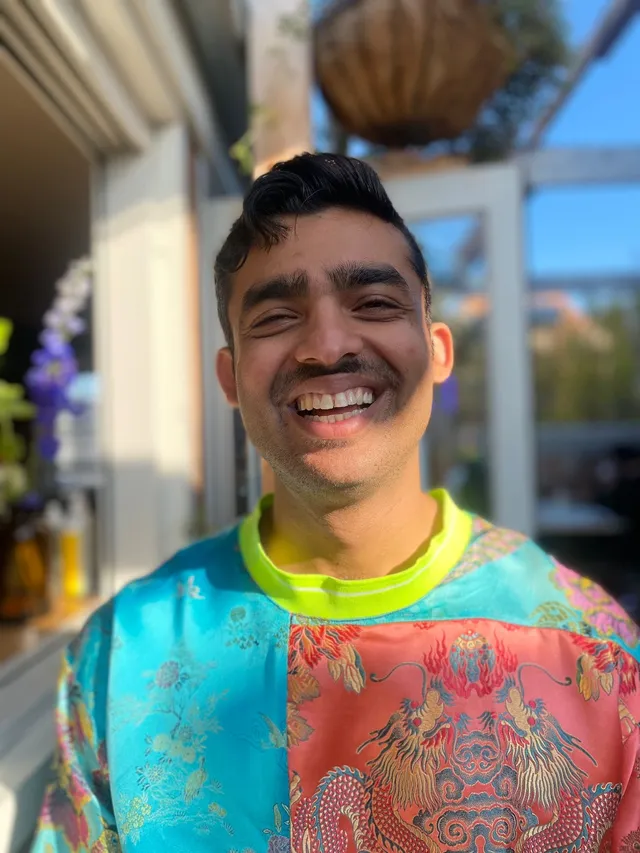
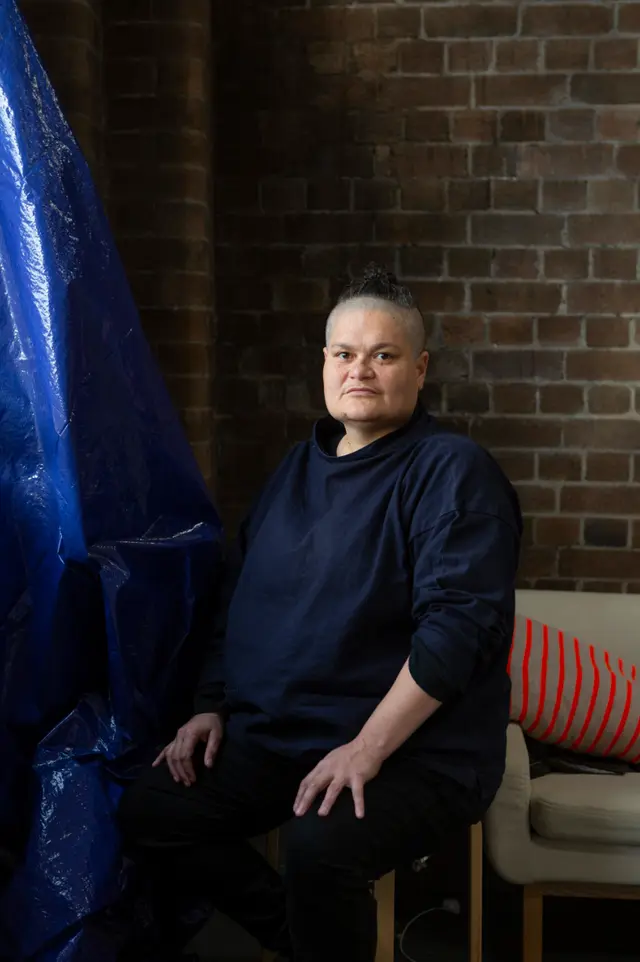
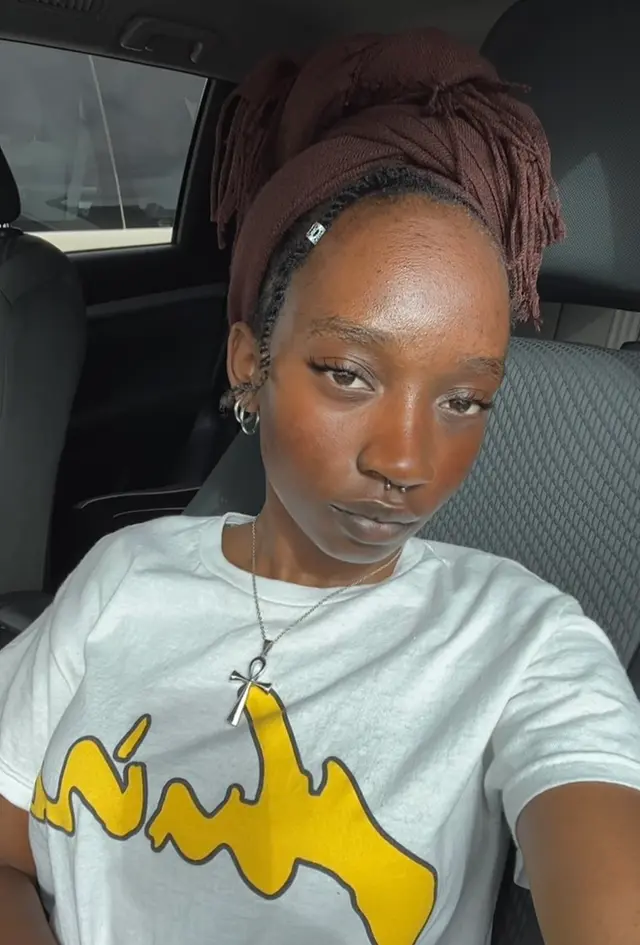
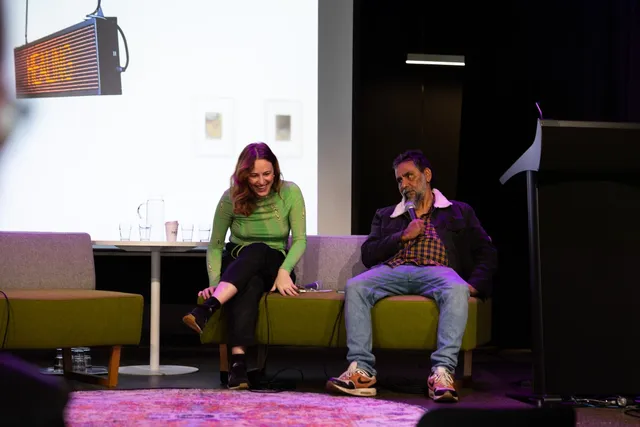
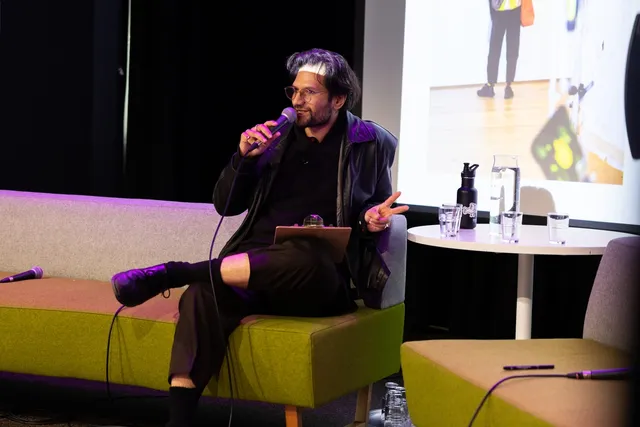
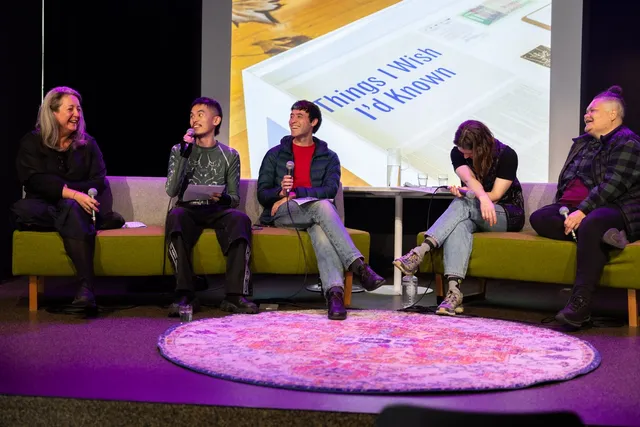
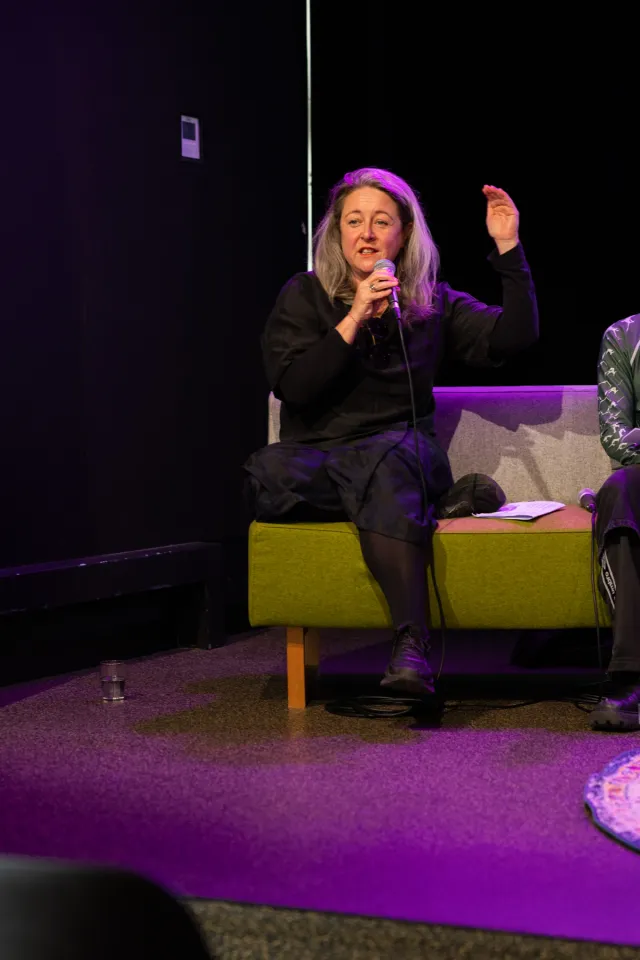
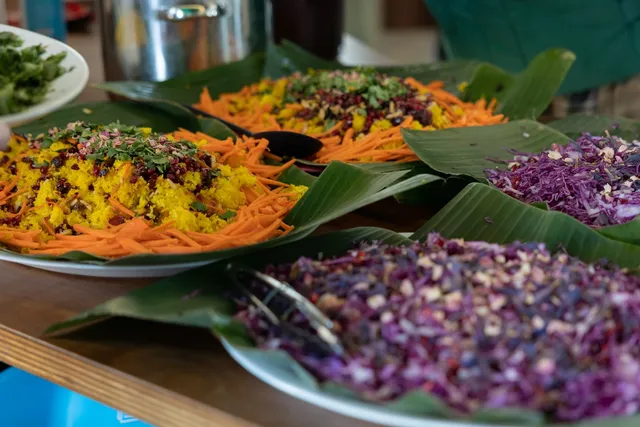
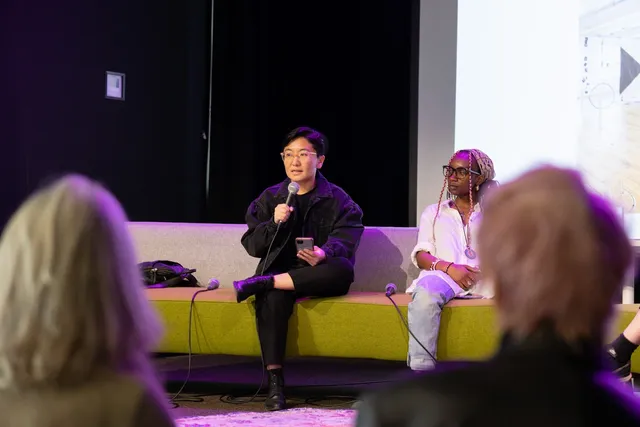

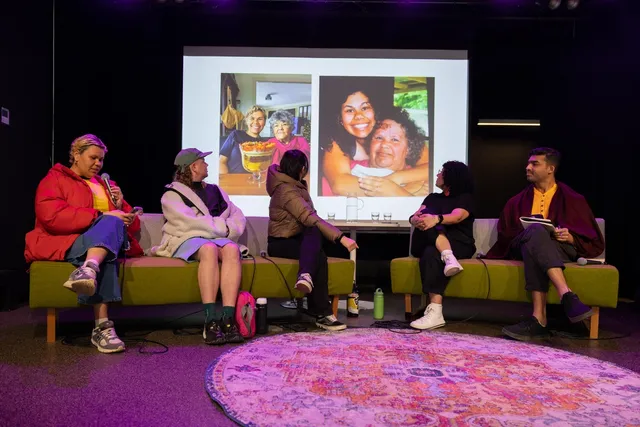
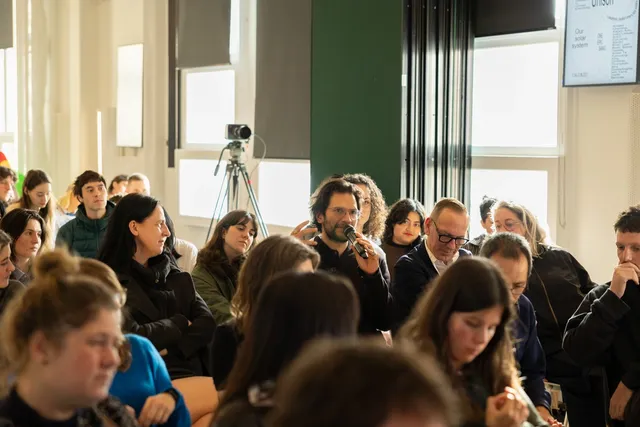
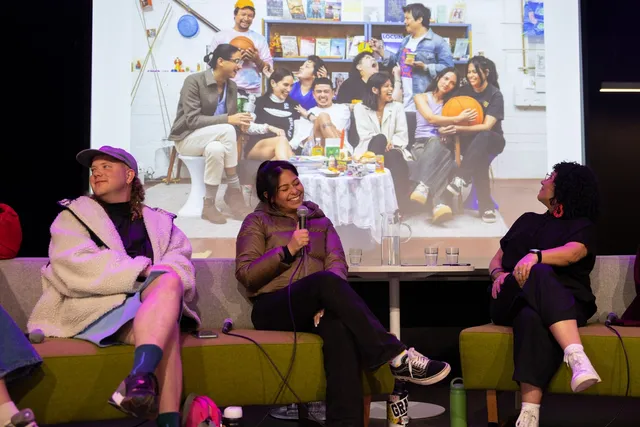
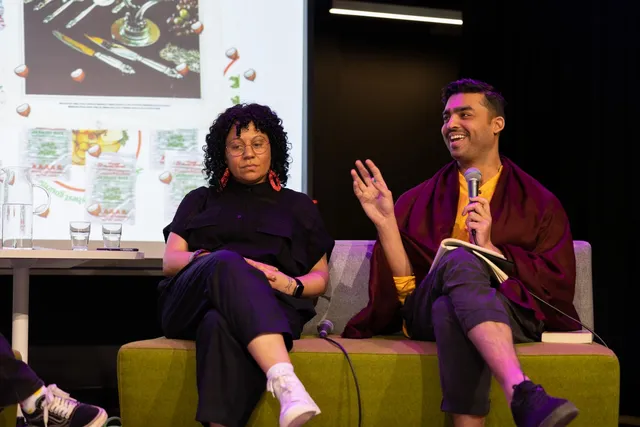
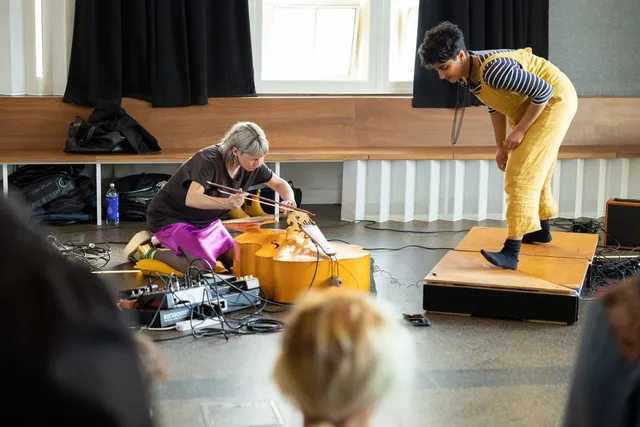

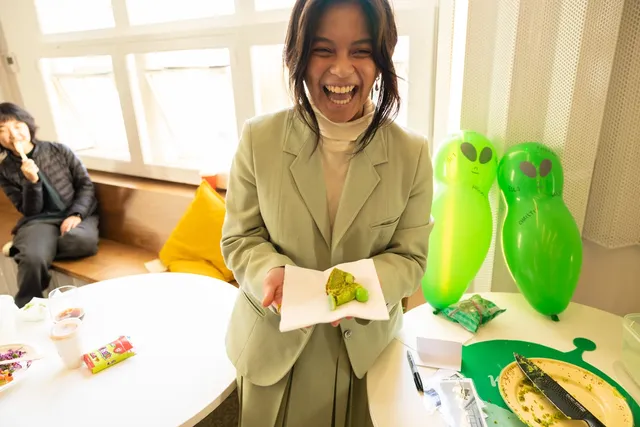
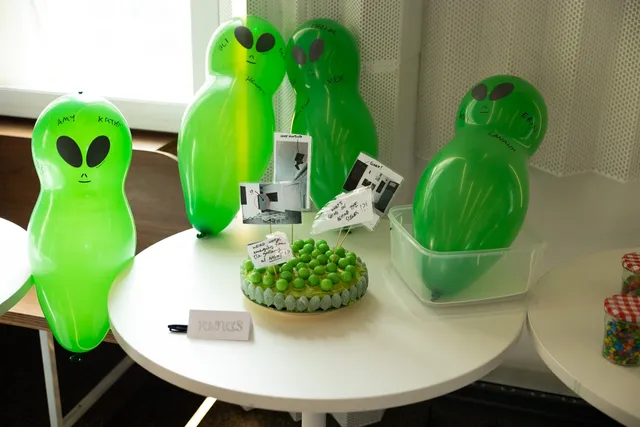
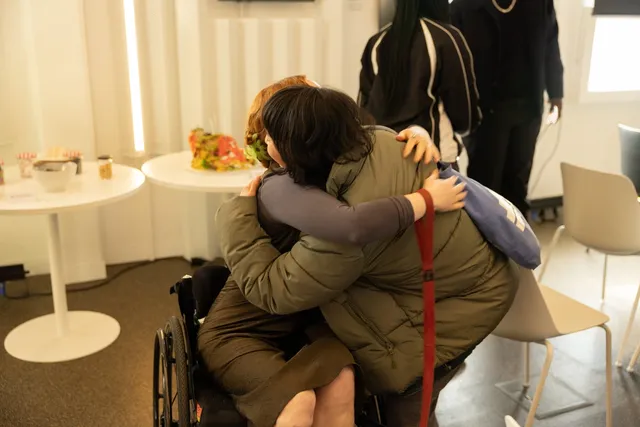
Aida Azin is a painter, art facilitator and community organiser based in Naarm. Born to Iranian/Filipina parents and raised in an Australian context, her practice advocates for conversations about shame as a failing political tool, first-generation migrant guilt, racism, Whiteness, dreams, identity, food, and culture. Aida is a collaborating artist and organiser in Saluhan collective and a member of the West Space Artist Committee, 2023-2024.
Archie Barry is an interdisciplinary visual artist in Naarm/Melbourne. Their work is autobiographical, somatic and process-led, spanning performance, video, music composition and writing. By cultivating a genealogy of personas based on their own experiences of power and mortality, they produce self-portraiture that troubles dominant notions of personhood and representation.
Torika Bolatagici is a Fijian-Australian artist, writer and academic working across multiple disciplines including photography, video, installation, publication, and curation. Her work explores the social, cultural and political movement of bodies. Shifting between the languages of documentary, archival recovery, re-enactment and abstraction, Torika explores the tensions and intersections of race, gender, power, commodification and globalisation.
Gabi Briggs is an Anaiwan woman, a research-based artist, weaver, and community organiser. Her practice reflects a commitment to returning back to Indigenous knowledges and addresses pressing issues like the climate crisis. Gabi engages with the complexities of race, power, and truth-telling through her art, seeking to restore Indigenous sovereignty and enact self-determination. Gabi is the recipient of the 2024 West Space Commission.
Sebastian Henry-Jones is the Curator at West Space. He has an interest in DIY thinking. He looks to embody these ideals in a practice that centres the needs, ideas and requirements of those that he works with, and so his practice is informed by striving for a personal ethics with sincerity, generosity, honest communication and learning at its core.
Indra Liusuari is an interdisciplinary artist and a student of architecture whose practice includes audio-visual media, documented performances, site-interventive installations, and publications. Conceptually, Liusuari is focused on critical discourses around the presence of white supremacy in the gay subculture and the gentrification of ethnic enclaves, which manifest via absurdist exaggeration and satirical self-exotification. Brutalist architecture and industrial design, audio-visual remnants of the 1980s and 1990s, and the underground rave scene have become paramount influences in their practice.
Jinghua Qian is a Shanghainese-Melburnian writer often found worrying about race, resistance, art, desire, queerness and the Chinese diaspora.
Lisa Radford is an artist who writes and teaches. Lisa lectures at the Victorian College of the Arts.In conjunction with the exhibition, West Space and Surpllus also launched Aesthetic nonsense makes commonsense, thanks X, a book presenting a collection of her writings.
Diego Ramirez makes art, writes about culture, and labours in the arts. In 2018, he showed his video work in a solo screening by ACCA x ACMI and he performed in Lifenessless at West Space x Gertrude Contemporary in 2019. He has shown locally and internationally. He is represented by MARS Gallery, Editor-at-large at Running Dog and Director at SEVENTH.
Leen Rieth is an artist and researcher living and working in Warrang Sydney. Their work is about trans experience, institutional narratives, and arts organising. They have identified parallels in these contexts relating to autonomy and self determination, perception and shared realities, and affirmation and futurity. They mess with the physical aspects, processes, and narratives in and around art institutions including art collectives, exhibitions, art schools, collections, and residency programs. Leen is particularly focused on interdependencies of people, procedures, policies and structures, automated systems and physical infrastructure.
Iran Sanadzadeh is a performer and composer. Her work explores the possible relationships between movement and sound using her set of terpsichora pressure-sensitive floors. Her collaborative practice-based research focuses on interaction design for music, movement and dance. She has recently released her debut solo album on the Floors Ocean, Again, on PEOPLE SOUND. Iran is the Convenor of composition and music technology at Monash University.
Chloë Sobek is a composer-performer based in Naarm, Australia. Her work is currently centred on the development of a post-anthropocentric sonic practice that encompasses a diversity of enquiry from acoustemology through to noise music. She is invested in what creative practice can do to deconstruct and reshape the way we conceptualise our collective futures. Chloë’s practice is built around the Renaissance precursor to the double bass, the violone. Her creative process couples maximalist and musique concrète sensibilities such as audio-montage and electronic processing, with a handling of sound as a senate object, unlinked and undefined by its source.
Aziz Sohail is a Pakistani-born curator, writer and researcher whose work builds interdisciplinary connections between art, history, archives, literature, theory and biography and supports new cultural and pedagogical infrastructures. Their research and resultant projects honour and recognise the power of queer and feminist collectivity, sociability, joy and wayward encounter. They are currently a PhD Student in Curatorial Practice at Monash University.
Working across performance, moving image, painting and installation, Salote Tawale probes ideas of self-representation, humorously challenging stereotypes and presenting nuanced articulations of the complex negotiations around identity as a Fijian woman living in Australia. Tawale’s recent works expand these concerns, acknowledging the growing significance of indigenous knowledge systems to individuals living in the diaspora in navigating this particular time and space.
Star Wanyama is a Kenyan-born Kiwi-Australian interdisciplinary artist, who grew up in Dja Dja Wurrung — currently studying film & photography in Naarm. In early childhood Star had an imaginative interest for writing and drawing, which eventually blossomed into a fascination for digital photography. Whilst in school Star was a winner of multiple awards, including the RAW Arts Award (2017). She’s now on a journey of blending and exploring different art forms such as film/photography, sound, performance, poetry and visual arts.